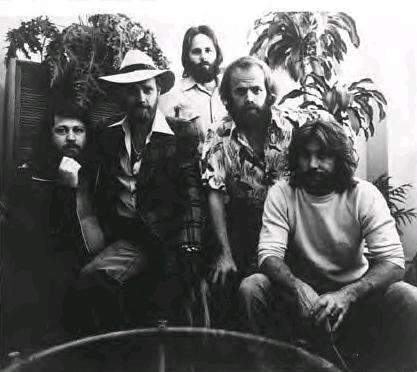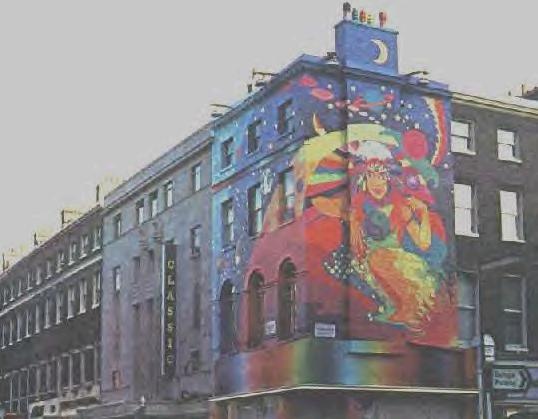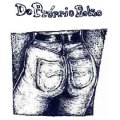|
| 1953 |
Lita
Roza: How Much Is That Doggie In The Window |
| 1957 |
Frankie
Vaughan: The Garden Of Eden |
| 1958 |
Michael
Holliday: The Story Of My Life |
| 1960 |
Michael
Holliday: Starry Eyed |
| 1961 |
Frankie
Vaughan: Tower Of Strength |
| 1963 |
Gerry
& The Pacemakers: How Do You Do It? |
| 1963 |
The
Beatles: From Me To You |
| 1963 |
Gerry
& The Pacemakers: I Like It |
| 1963 |
The
Searchers: Sweets For My Sweet |
| 1963 |
Billy
J. Kramer: Bad To Me |
| 1963 |
The
Beatles: She Loves You |
| 1963 |
Gerry
& The Pacemakers: You'll Never Walk Alone |
| 1963 |
The
Beatles: I Want To Hold Your Hand |
| 1964 |
The
Searchers: Needles And Pins |
| 1964 |
Cilla
Black: Anyone Who Had A Heart |
| 1964 |
Billy
J. Kramer: Little Children |
| 1964 |
The
Beatles: Can't Buy Me Love |
| 1964 |
The
Searchers: Don't Throw Your Love Away |
| 1964 |
Cilla
Black: You're My World |
| 1964 |
The
Beatles: Hard Day's Night |
| 1964 |
The
Beatles: I Feel Fine |
| 1965 |
The
Beatles: Ticket To Ride |
| 1965 |
The
Beatles: Help! |
| 1965 |
Ken
Dodd: Tears |
| 1965 |
The
Beatles: Day Tripper |
| 1966 |
The
Beatles: Paperback Writer |
| 1966 |
The
Beatles: Yellow Submarine/Eleanor Rigby |
| 1967 |
The
Beatles: All You Need Is Love |
| 1967 |
The
Beatles: Hello, Goodbye |
| 1968 |
The
Beatles: Lady Madonna |
| 1968 |
The
Beatles: Hey Jude |
| 1968 |
The
Scaffold: Lily The Pink |
| 1969 |
The
Beatles: Get Back |
| 1969 |
The
Beatles: The Ballad Of John & Yoko |
The
list is impressive for one city in England.
Their are many more No.1's from Liverpool acts but I have
stopped at the end of the fab 60's.
Berry
Good News
Dave Berry is delighted that he has secured a distribution
deal with Universal for his new album 'Memphis in the Meantime'.
Strangely, it coincides with the same week his first single,
'Memphis Tennessee' was released on Decca, now part of Universal.
As a bonus,Beat Goes On Records are releasing two of the
1964/65 Decca albums later this month (August 2004). They
feature early jazz & blues material never released on
singles. Berry's roots obviously do run very deep.
Bill
Harry Q and A
THESE QUESTIONS HAVE BEEN ASKED BY MERSEYBEATLOVER TO BILL
HARRY... AND MERSEYBEATLOVER HAS BEEN GIVEN THE RIGHTS TO
PUBLISH THEM IN THESE PAGES. THANK YOU BILL.
Some questions to Bill Harry...more to follow.........Questions
asked by merseybeatlover1 (Brian). Bill will answer the
questions below.
these are questions...that I and many more would love to
know.......
(answers supplied by Bill Harry) (c)bill harry
The Beach Boys were one of the groups you were press agent
for. What were they like?
They were very easy to get on with and not as raucous or
as fond of the booze as some of the British groups I represented
(can you image what it was like having afternoon drinking
sessions with Keith Moon!). I’d initially met them when
I was writing for Record Mirror and first interviewed them
at the Hilton Hotel in Park Lane.

A lot of it involved social interaction. We’d go clubbing
at the Revolution with Al Jardine and Sandra, a friend of
ours who he went out with (sadly, she died last year), I
interested Carl in physic books and took him to the psychic
book shops off Charing Cross Road. I also took Carl on visits
to Apple. I accompanied them on a camera shoot at Strand
on the Green, outside the pub where the Beatles had filmed
Help! I used to drink in De Hems with Dennis Wilson and
he told me how excited he was about this group of people
he’d become involved with, who had a place in the desert
with lots of girls. It turned out to be Manson and his crowd.
Sitting in the Palladium during rehearsals I interested
Mike Love in the book ‘The Morning of the Magicians,’ he
was intrigued about Atlantis and mystical things. Dick Duryea,
film actor Dan Duryea’s son was their road manager and we
used to go to parties with them. I represented them on a
couple of their British visits.
What was Apple like?
I only saw Apple from a social point of view and initially
visited their original offices before dropping in regularly
when they moved to Savile Row. Derek Taylor used to invite
me along to listen to previews of new albums. In his office
smelling of pot, in which bottles of lager were freely available,
he would be busily writing memos, inviting me to create
memos (I didn’t write it, but he made a memo, allegedly
from me, asking would the Beatles appear at the Cavern again).
His memos were bizarre, but intriguing.

Another Apple friend was Tony
Bramwell, whose autobiography is published this year by
St Martin’s Press. At the Revolution one night, Sandra,
a friend of ours, introduced us to members of the Hell’s
Angels who had been invited over by George Harrison. She’d
told them all about me and they wanted me to handle their
publicity. I said I couldn’t, but they insisted – fortunately
they forgot about it and didn’t press it. Then, at the Apple
party, the Hell’s Angels were there. The main place where
the party was held was crammed with people in the fashionable
psychedelic styles and colours of clothes of the time. A
girl was breast feeding her baby, Caleb was crouched on
the floor reading tarot cards, there were lots of kids around,
it seemed a bit of a mayhem, so I drifted to the floor above.
In the main room were two solitary figures, sitting cross-legged
in the middle of the floor: Mr & Mrs Santa Claus - John
and Yoko. John introduced me to her and we shook hands,
but she wasn’t very communicative.
As mentioned with Carl Wilson,
I often dropped around with people to introduce them. I
took Mike Moorcock, a former pen pal of mine, who had become
a science-fiction author and was currently publishing New
Worlds magazine. The Beatles were impressed with the magazine
and donated £1,00 0
towards it. 0
towards it.
Many
people say the Beatles first No.1 was ‘Please Please Me’
while others dispute this. Why is that?
The confusion has been caused by the situation which surrounded
the compiling of the charts in those days. Various music
publications in London published a weekly chart. Each compiled
them by contacting various record stores around the country.
As a result the entries could prove confusing. The Swinging
Blue Jeans pointed out the undesirability of such charts
and suggested one main chart to be shared by all. They said
this after the sales of the Rolling Stones’ ‘Little Red
Rooster’ were affected when it was seen to rise in some
charts and fall in others.
The charts were compiled by the New Musical Express, Record
Retailer, Record Mirror and Disc. The most influential chart
at the time was the New Musical Express and ‘Please Please
Me’ topped the NME chart on 23 February 1963 and also on
2 March 1963. However, in the Record Retailer chart it only
reached No. 2. Record Retailer was the music industry trade
publication and when chart books began to appear, such as
the Guinness books of hits, they used the Record Retailer
charts, which meant that they didn’t acknowledge ‘Please
Please Me’ as being No.1. As Record Retailer changed its
name to Music Week and remained the trade paper for the
industry, their charts are the ones usually regarded as
the official ones, which means that Gerry & the Pacemakers
were the first Liverpool group to top the British charts
and not the Beatles…..on the other hand, the NME was Britain’s
biggest musical paper, far more influential than the Record
Retailer, so many people consider the fact that the Beatles
topped the NME chart and therefore they became the first
Liverpool group to top the charts!
Take your pick!
Bill
Harry and the Beatles

Bill has given me this picture of him with the Beatles...(what
a lucky guy)
|



 0
towards it.
0
towards it.